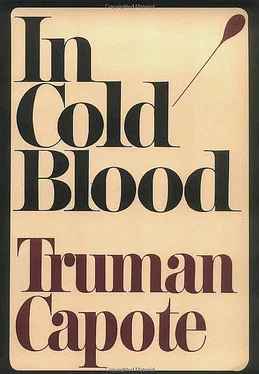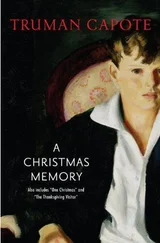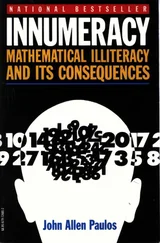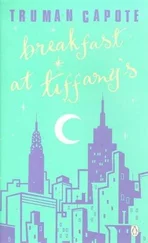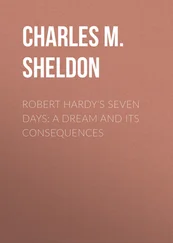Truman Capote - In Cold Blood - A True Account of a Multiple Murder and Its Consequences
Здесь есть возможность читать онлайн «Truman Capote - In Cold Blood - A True Account of a Multiple Murder and Its Consequences» весь текст электронной книги совершенно бесплатно (целиком полную версию без сокращений). В некоторых случаях можно слушать аудио, скачать через торрент в формате fb2 и присутствует краткое содержание. Город: New York, Год выпуска: 2002, ISBN: 2002, Издательство: Random House, Жанр: Прочая документальная литература, Криминальный детектив, на английском языке. Описание произведения, (предисловие) а так же отзывы посетителей доступны на портале библиотеки ЛибКат.
- Название:In Cold Blood: A True Account of a Multiple Murder and Its Consequences
- Автор:
- Издательство:Random House
- Жанр:
- Год:2002
- Город:New York
- ISBN:0375507906
- Рейтинг книги:3 / 5. Голосов: 1
-
Избранное:Добавить в избранное
- Отзывы:
-
Ваша оценка:
- 60
- 1
- 2
- 3
- 4
- 5
In Cold Blood: A True Account of a Multiple Murder and Its Consequences: краткое содержание, описание и аннотация
Предлагаем к чтению аннотацию, описание, краткое содержание или предисловие (зависит от того, что написал сам автор книги «In Cold Blood: A True Account of a Multiple Murder and Its Consequences»). Если вы не нашли необходимую информацию о книге — напишите в комментариях, мы постараемся отыскать её.
With the publication of this book, Capote permanently ripped through the barrier separating crime reportage from serious literature. As he reconstructs the 1959 murder of a Kansas farm family and the investigation that led to the capture, trial, and execution of the killers, Capote generates suspense and empathy.
In Cold Blood: A True Account of a Multiple Murder and Its Consequences — читать онлайн бесплатно полную книгу (весь текст) целиком
Ниже представлен текст книги, разбитый по страницам. Система сохранения места последней прочитанной страницы, позволяет с удобством читать онлайн бесплатно книгу «In Cold Blood: A True Account of a Multiple Murder and Its Consequences», без необходимости каждый раз заново искать на чём Вы остановились. Поставьте закладку, и сможете в любой момент перейти на страницу, на которой закончили чтение.
Интервал:
Закладка:
Shouting, the auctioneer praised his wares—tractors, trucks, wheelbarrows, nail kegs and sledgehammers and unused lumber, milk buckets, branding irons, horses, horseshoes, everything needed to run a ranch from rope and harness to sheep dip and tin washtubs—it was the prospect of buying this merchandise at bargain prices that had lured most of the crowd. But the hands of bidders flickered shyly—work-roughened hands timid of parting with hard-earned cash; yet nothing went unsold, there was even someone keen to acquire a bunch of rusty keys, and a youthful cowboy sporting pale-yellow boots bought Kenyon Clutter’s “coyote wagon,” the dilapidated vehicle the dead boy had used to harass coyotes, chase them on moonlit nights.
The stagehands, the men who hauled the smaller items on and off the auctioneer’s podium, were Paul Helm, Vie Irsik, and Alfred Stoecklein, each of them an old, still-faithful employee of the late Herbert W. Clutter. Assisting at the disposal of his possessions was their final service, for today was their last day at River Valley Farm; the property had been leased to an Oklahoma rancher, and hence forward strangers would live and work there. As the auction progressed, and Mr. Clutter’s worldly domain dwindled, gradually vanished, Paul Helm, remembering the burial of the murdered family, said, “It’s like a second funeral.”
The last thing to go was the contents of the livestock corral, mostly horses, including Nancy’s horse, big, fat Babe, who was much beyond her prime. It was late afternoon, school was out, and several schoolmates of Nancy’s were among the spectators when bidding on the horse began; Susan Kidwell was there. Sue, who had adopted another of Nancy’s orphaned pets, a cat, wished she could give Babe a home, for she loved the old horse and knew how much Nancy had loved her. The two girls had often gone riding together aboard Babe’s wide back, jogged through the wheat fields on hot summer evenings down to the river and into the water, the mare wading against the current until, as Sue once described it, “the three of us were cool as fish.” But Sue had no place to keep a horse.
“I hear fifty… sixty-five… seventy…”: the bidding was laggardly, nobody seemed really to want Babe, and the man who got her, a Mennonite farmer who said he might use her for plowing, paid seventy-five dollars. As he led her out of the corral, Sue Kidwell ran forward; she raised her hand as though to wave goodbye, but instead clasped it over her mouth.
The Garden City Telegram, on the eve of the trial’s start, printed the following editorial: “Some may think the eyes of the entire nation are on Garden City during this sensational murder trial. But they are not. Even a hundred miles west of here in Colorado few persons are even acquainted with the case—other than just remembering some members of a prominent family were slain. This is a sad commentary on the state of crime in our nation. Since the four members of the Clutter family were killed last fall, several other such multiple murders have occurred in various parts of the country. Just during the few days leading up to this trial at least three mass murder cases broke into the headlines. As a result, this crime and trial are just one of many such cases people have read about and forgotten…”
Although the eyes of the nation were not upon them, the demeanor of the event’s main participants, from the court recorder to the judge himself, was markedly self-aware on the morning of the court’s first convening. All four of the lawyers sported new suits; the new shoes of the big-footed county attorney creaked and squealed with every step. Hickock, too, was sharply dressed in clothes provided by his parents: trim blue-serge trousers, a white shirt, a narrow dark-blue tie. Only Perry Smith, who owned neither jacket nor tie, seemed sartorially misplaced. Wearing an open-necked shirt (borrowed from Mr. Meier) and blue jeans rolled up at the cuffs, he looked as lonely and inappropriate as a seagull in a wheat field.
The courtroom, an unpretentious chamber situated on the third floor of the Finney County Courthouse, has dull white walls and furnishings of darkly varnished wood. The spectator benches can seat perhaps one hundred and sixty persons. On Tuesday morning, March 22, the benches were occupied exclusively by the all-male venire of Finney County residents from which a jury was to be selected. Not many of the summoned citizenry seemed anxious to serve (one potential juror, in conversation with another, said, “They can’t use me. I can’t hear well enough.” To which his friend, after a bit of sly reflection, replied, “Come to think of it, my hearing’s not too good either”), and it was generally thought that the choosing of the jury would take several days. As it turned out, the process was completed within four hours; moreover, the jury, including two alternative members, was extracted from the first forty-four candidates. Seven were rejected on pre-emptory challenge by the defense, and three were excused at the request of the prosecution; another twenty won dismissal either because they opposed capital punishment or because they admitted to having already formed a firm opinion regarding the guilt of the defendants.
The fourteen men ultimately elected consisted of half a dozen farmers, a pharmacist, a nursery manager, an airport employee, a well driller, two salesmen, a machinist, and the manager of Ray’s Bowling Alley. They were all family men (several had five children or more), and were seriously affiliated with one or another of the local churches. During the voir dire examination, four of them told the court that they had been personally, though not intimately, acquainted with Mr. Clutter; but upon further questioning, each said he did not feel this circumstance would hinder his ability to reach an impartial verdict. The airport employee, a middle-aged man named N. L. Dunnan, said, when asked his opinion of capital punishment, “Ordinarily I’m against it. But in this case, no”—a declaration which, to some who heard it, seemed clearly indicative of prejudice. Dunnan was nevertheless accepted as a juror.
The defendants were inattentive observers of the voir dire proceedings. The previous day, Dr. Jones, the psychiatrist who had volunteered to examine them, had interviewed them separately for approximately two hours: at the end of the interviews, he had suggested that they each write for him an autobiographical statement, and it was the act of composing these statements that occupied the accused throughout the hours spent assembling a jury. Seated at opposite ends of their counsels’ table, Hickock worked with a pen and Smith with a pencil.
Smith wrote:
I was born Perry Edward Smith Oct. 27 1928 in Huntington, Elko County, Nevada, which is situated way out in the boon docks, so to speak. I recall that in 1929 our family had ventured to Juneau, Alaska. In my family were my brother Tex Jr. (he later changed his name to James because of the ridicule of the name “Tex” & also I believe he hated my father in his early years—my mother’s doing). My sister Fern (She also changed her name—to Joy). My sister Barbara. And myself. In Juneau, my father was making bootleg hooch. I believe it was during this period my mother became acquainted with alcohol. Mom & Dad began having quarrel. I remember my mother was “entertaining” some sailors while my father was away. When he came home a fight ensued, and my father, after a violent struggle, threw the sailors out & proceeded to beat my mother. I was frightfully scared, in fact all us children were terrified. Crying. I was scared because I thought my father was going to hurt me, also because he was beating my mother. I really didn’t understand why he was beating her but I felt she must have done something dreadfully wrong… The next thing I can vaguely recall is living in Fort Bragg, Calif. My brother had been presented a B.B. gun. He had shot a hummingbird, and after he had shot it he was sorry. I asked him to let me shoot the B.B. gun. He pushed me away, telling me I was too small. It made me so mad I started to cry. After I finished crying, my anger mounted again, and during the evening when the B.B. gun was behind the chair my brother was sitting in, I grabbed it & held it to my brother’s ear & hollered BANG! My father (or mother) beat me and made me apologize. My brother used to shoot at a big white horse ridden by a neighbor who went by our place on his way to town. The neighbor caught my brother and I hiding in the bushes and took us to Dad & we got a beating & brother had his B.B. gun taken away & I was glad he had hit gun taken away!… This is about all I remember when we lived in Fort Bragg (Oh! We kids used to jump from a hay-loft, holding an umbrella, onto a pile of hay on the ground)… My next recollection is several years later when we were living in Calif.? Nevada? I recall a very odious episode between my mother and a Negro. We children slept on a porch in the summertime. One of our beds was directly under my mother and father’s room. Everyone of us kids had taken a good look through the partly open curtain and seen what was going on. Dad had hired a Negro(Sam) to do odd jobs around the farm, or ranch, while he was working somewhere down the road. He used to come home late in the evening in his Model A truck. I do not recall the chain of events but assumed Dad had known or suspected what was happening. It ended in a separation between Mom & Dad & Mom took us kids to San Francisco. She run off with Dad’s truck & all of the many souvenirs he brought from Alaska. I believe this was in 1935 (?)… In Frisco I was continuously in trouble. I had started to run around with a gang, all of which were older than myself. My mother was always drunk, never in a fit condition to properly provide and care for us. I run as free & wild as a coyote. Their was no rule or discipline, or anyone to show me right from wrong I came & went as I pleased—until my first encounter with Trouble. I was in & out of Detention Homes many times for running away from home & stealing. I remember one place I was sent to. I had weak kidneys & wet the bed every night. This was very humiliating to me, but I couldn’t control myself. I was very severely beaten by the cottage mistress, who had called me names and made fun of me in front of all the boys. She used to come around at all hours of the night to see if I wet the bed. She would throw back the covers & furiously beat me with a large black leather belt—pull me out of bed by my hair & drag me to the bathroom & throw me in the tub & turn the cold water on & tell me to wash myself and the sheets. Every night was a nightmare. Later on she thought it was very funny to put some ointment on my penis. This was almost unbearable. It burned something terrible. She was later discharged from her job. But this never changed my mind about her & what I could have done to her & all the people who made fun of me.
Читать дальшеИнтервал:
Закладка:
Похожие книги на «In Cold Blood: A True Account of a Multiple Murder and Its Consequences»
Представляем Вашему вниманию похожие книги на «In Cold Blood: A True Account of a Multiple Murder and Its Consequences» списком для выбора. Мы отобрали схожую по названию и смыслу литературу в надежде предоставить читателям больше вариантов отыскать новые, интересные, ещё непрочитанные произведения.
Обсуждение, отзывы о книге «In Cold Blood: A True Account of a Multiple Murder and Its Consequences» и просто собственные мнения читателей. Оставьте ваши комментарии, напишите, что Вы думаете о произведении, его смысле или главных героях. Укажите что конкретно понравилось, а что нет, и почему Вы так считаете.
